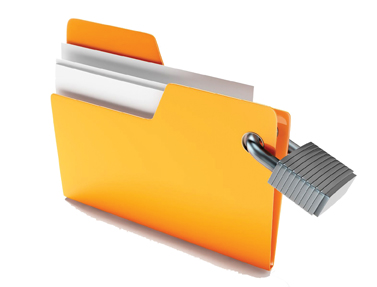Before you go…
Posted on June 30, 2014 by bob in Financial, MoneyWise
Life is fragile. Brief. Uncertain. None of us has a guarantee that we will be here tomorrow. While facing our physical mortality may be emotionally unpleasant, it is wise to acknowledge the reality that death will inevitably come to us as it does to all men (and women), and make preparations to assist those who will settle our affairs.
This fact was driven home to our CEO, Russ Crosson a few years ago. One of Russ’s sons was getting married and the family converged on Atlanta for the happy event. During his regular daily jog one day before the wedding, Russ’s younger brother died suddenly. Russ was immediately thrust into the role of advising his sister-in-law, who had limited familiarity with her late husband’s planning and their family finances.
Out of that situation Ronald Blue & Co. developed a packet that we refer to as our “home going planning” kit. It includes a timeline that family members can follow after the death of a loved one, plus a questionnaire to complete during life to make management easier for survivors.
Compiling information for the use of those who will handle matters after you are gone—or getting a relative or friend to do so to make your life easier when they pass on—is far better than having to play Sherlock Holmes, searching for account information, insurance policies, safe deposit keys, etc. Suppose you have to take over for a relative or friend who has been incapacitated or has died and who has not pulled together this information. You can readily understand you will spend a considerable amount of time simply collecting information before you can begin to understand the situation you are dealing with. Then consider how much more manageable your work would be if all of this was already organized for you by the person most familiar with it all. Finally, think about the challenges your loved ones will face if you do not prepare this material for them.
As a starting point, here is a list of materials you can compile for your survivors or help someone collect to make it less troublesome for you to settle their affairs.
— A list of current legal documents (will, power of attorney, advanced healthcare directive, organ donor, trust documents, etc.) and where they are located.
— A list of your financial advisors (attorney, accountant, banker, insurance agent, investment manager, etc.) with the address and phone number of each.
— The location of your birth certificate, marriage certificate, military discharge papers, children’s adoption papers, Social Security card and passport.
— The location and number of your safe deposit box, the location of the key, and an indication of who has authority to sign in and open the box.
— The location of and combination to your personal safe (or where the key is located), if applicable.
— Information on your medical insurance provider including the company name, policy number, contact information, etc.
— Information on your life and disability insurance policies including the issuing company, agent name and phone number, policy number, benefit amount, beneficiary designation, etc.
— A list of credit cards including account number, issuer and contact information.
— A list of bank and investment accounts including the name and phone numbers for the institution, the account numbers, a description of the account type, and where you keep statements for each one.
— A list of real estate that you own, the form of ownership, the location of records, information on related mortgages, etc.
— The location of your income tax returns for the past 3 years, as well as any prior gift tax returns.
— A list of any loans you owe (other than the property mortgages mentioned in #10 above) or notes owed to you.
— A description of any business interests that you own, along with documents related to the business (organization documents, stock certificates, buy-sell or stock redemption agreements, operating agreements, employment contracts, etc.).
Once the data has been compiled, a copy needs to stay with the owner as well as the person who will take over. With the risk of identity theft, all copies should be kept in a safe place.
Next month we will look at other advance planning steps that you (and I) should take in anticipation of our inevitable departure from this life. If we love our spouse, children or other likely survivors who will have to sort things out, we can do no less.
Alan Wallace, CFA, ChFC, CLU is a Senior Financial Advisor for Ronald Blue & Co.’s Montgomery office, www.ronblue.com/location-al. He can be reached at 334-270-5960, or by e-mail at alan.wallace@ronblue.com.










